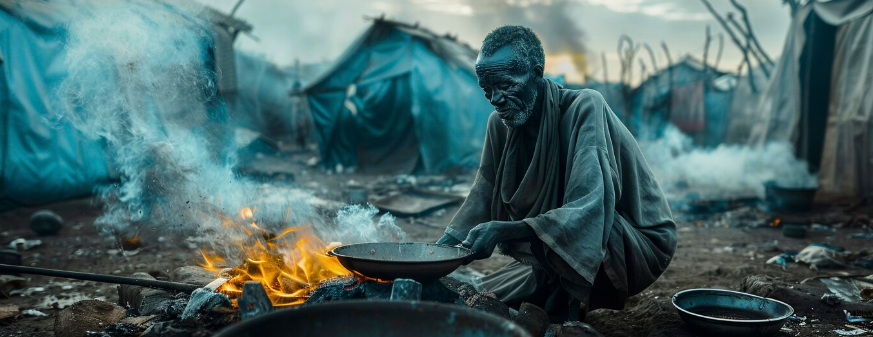By Dessalines Ferdinand, LE FLORIDIEN
Gang Leader in Haiti Allegedly Murders Elderly Over Witchcraft Claims
The tragic massacre in Cité Soleil (Haiti) last weekend, where more than 100 elderly residents lost their lives, reveals how decades of leadership failure have made the unthinkable possible in a country once known as the “Pearl of the Antilles.” Once, it was a place where living in peace was beautiful, where communities thrived in harmony and resilience, a stark contrast to the chaos and violence that now define the daily reality for so many.
This horrific event, marked by the brutal killing of elderly residents by gang leader Micanor Altes—better known as “Wa Mikanò”—and his lieutenant Monel Felix, occurred between Friday and Saturday in the Wharf Jérémie section of Cité Soleil in Port-au-Prince.
Altes carried out the massacre after consulting a local Vodou priest, who accused the community’s elders of using witchcraft to cause his son’s death. Fueled by this unfounded accusation, Altes targeted the elderly, believing them responsible for his son’s suffering, resulting in the horrific deaths of over 100 defenseless individuals.
The barbaric atrocities unfolded without effective intervention, laying bare the profound consequences of a governance void. Haiti’s weak state institutions, particularly the police and judiciary, have left residents vulnerable to unchecked violence. Driven by years of impunity, Altes carried out this rampage without fear of immediate reprisal, further emphasizing the state’s failure to protect its most vulnerable citizens.
It is an unthinkable horror and an unjustifiable action. The Vodou priest’s accusation against the elderly community of Cité Soleil reflects a dangerous intersection of superstition and societal collapse. In a society plagued by a lack of education and effective leadership, such baseless claims can easily incite mass violence. This reliance on superstition during crises is a direct consequence of the state’s failure to provide education and social structures that promote critical thinking and peaceful conflict resolution.
The massacre also points out Haiti’s increasing dependence on international actors to address its crises. U.N. Secretary-General António Guterres and other global leaders have repeatedly called for international support to bolster Haiti’s capacity to combat gang violence. However, the transitional Haitian government’s delayed response and symbolic condemnation of this tragic massacre highlight a troubling lack of decisive leadership.
Altes’ Viv Ansanm gang alliance demonstrates the power vacuum created by decades of political instability. Gangs have supplanted the government in many areas, controlling neighborhoods, displacing residents, and committing atrocities like the Cité Soleil-Wharf Jérémie massacre. These groups thrive due to the state’s inability to enforce the rule of law or address the root causes of poverty and disenfranchisement.
According to Pierre Esperance, executive director of the National Human Rights Defense Network, this is not Altes’ first brutal act against residents of his community. In June 2021, the gang leader executed 12 elderly women accused of witchcraft. Such repeated acts of violence personify a cycle of brutality perpetuated by systemic failure. This pattern demonstrates the normalization of violence in a society abandoned by its leaders.
Last weekend’s Cité Soleil massacre is a stark manifestation of the systemic failures that have plagued Haiti for decades. The root of the issue is the absence of effective law enforcement, which allows gang leaders like Micanor Altes to operate with complete impunity, terrorizing communities without fear of reprisal.
Compounding this is the chronic failure of public education, which fosters a reliance on superstition as a way to interpret and address personal and societal crises, leaving communities vulnerable to manipulation and fear-driven violence. Furthermore, the persistent lack of leadership accountability has created a vacuum where no sustainable actions are implemented to prevent such atrocities.
This unimaginable tragedy stems directly from decades of leadership failures marked by neglect, corruption, and inaction, which have allowed gangs to amass more power than the government itself. Without immediate, decisive efforts to address these root causes —supported by both national and international efforts—Haiti faces the grim prospect of further chaos, leaving its citizens increasingly vulnerable to exploitation and violence.

